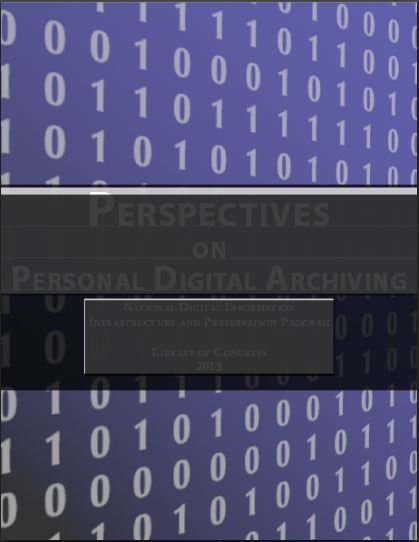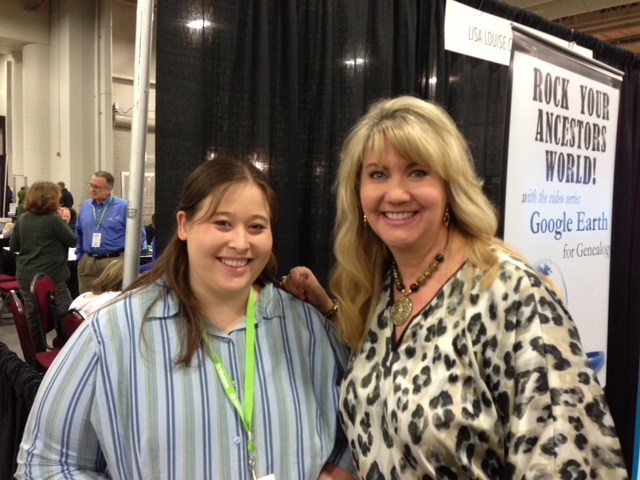Blog

Take a Break: A Video Guaranteed to Take You Back to a Gentler Time
Grab a pop, find a porch swing and enjoy Pickin’ and Trimmin’

How to Grab Your Copy of a Free Digital Archiving E-Book
Digital archiving is a hot topic for genealogists these days. Digitizing our family documents, photographs and other artifacts is one more way to help us preserve and share our heritage. Well, the Library of Congress wants to help us out! It has published a free e-book, Perspectives on Personal Digital Archiving.
 Scroll through the table of contents and you’ll see immediately why this book is valuable to family historians. There are lots of how-tos on preserving photos and other images: what file formats to use, cloud storage, adding digital captions, image resolution and more. There are sections on how everyday people are preserving their own digital archives. There’s even a great chapter on making sure your digital files live on after you pass away.
Scroll through the table of contents and you’ll see immediately why this book is valuable to family historians. There are lots of how-tos on preserving photos and other images: what file formats to use, cloud storage, adding digital captions, image resolution and more. There are sections on how everyday people are preserving their own digital archives. There’s even a great chapter on making sure your digital files live on after you pass away.
There’s an entire chapter on digitizing for the family historian. It gets to the heart of a genealogist’s file organization and storage needs: “Digital genealogy could result in a heap of text files (such as GEDCom files), image scans (most sites enable you to save an image in either JPEG, TIFF or PDF formats), audio files and video files. It’s best to follow the Library of Congress’s personal archiving advice, which is basically to:
1) organize everything within one collection folder
2) backup your collection onto several storage media in several different places
3) migrate your collection every five years or so to new storage media.
Don’t trust that a third-party genealogy service will always remain in business and keep your stuff safe forever. You should have your own copy handy and another copy backed up somewhere else.”
Great advice! Check out the entire book for yourself. And thanks to GenealogyBlog authors Leland and Patty Meitzler who blogged about this new e-book on their site.

10 Top Tips for Breaking Down Your Genealogy Brick Wall
“One of the most incredible and likely true stories I’ve ever seen!” announced Dave Obee as he met with Genealogy Gems Listener Sarah Stout, the winner of our #RootsTech 2013 conference registration contest.
The question to contestant was “who’s class would you most like to attend at RootsTech?” Sarah’s answer was Dave Obee, and that was because she was  running up against a Canadian brick wall in her family history research, and Dave is a Canadian Research Guru!
running up against a Canadian brick wall in her family history research, and Dave is a Canadian Research Guru!
Read more about Sarah’s incredible genealogical brick wall:
- Sarah’s Summary of the Situation
- The Death Certificate
- Her Family Sketch page 46
- The Move to Arizona page 88
In my new video at the Genealogy Gems YouTube channel I get the two together and Dave dishes up 10 terrific tips that will not only help Sarah, but are sure to prove their worth in your own family tree climbing.
Dave Obee’s Top 10 Tips:
1. Create a Timeline – “plot her life…it’s easier to see the holes.”
2. Understand Geography – “plot movements”
3. Find Every Possible Record
4. Understand How Records Were Created
5. Read Every Local Story in Newspapers at that Time
6. Tap into Local Knowledge – “Locals know more” (historical and genealogical societies)
7. Go There if You Can in Person
8. Look for Negative Proof
9. Collaborate with Other Researchers
10. Be Diligent About Proof
Resources Mentioned in the video:
- Google Earth for Genealogy (video tutorial CD) Volume I and II by Lisa Louise Cooke
- How to Find Your Family History in Newspapers by Lisa Louise Cooke
Subscribe to the Genealogy Gems YouTube Channel for free to receive instant updates of all of my latest videos from RootsTech 2013 and beyond.




